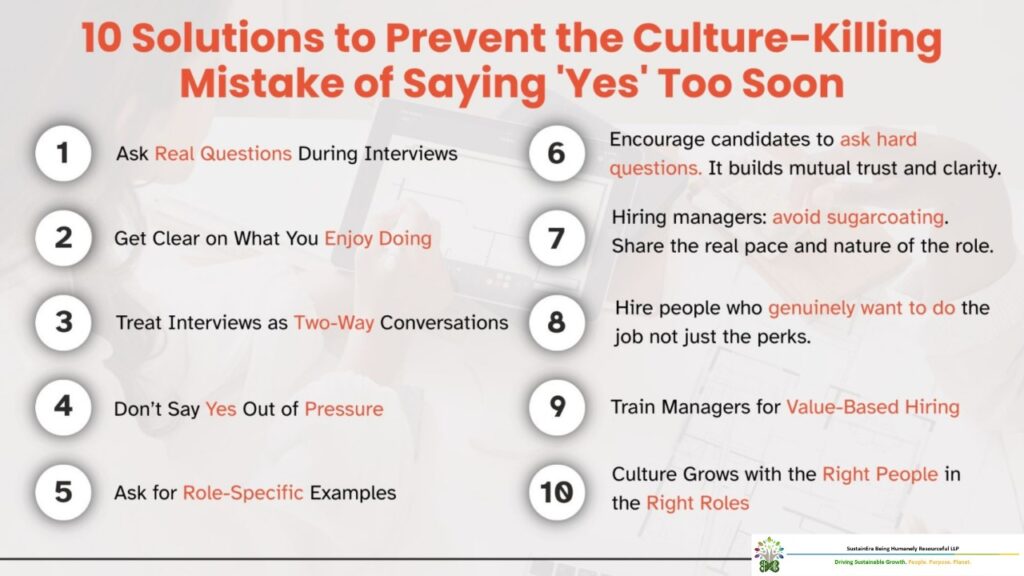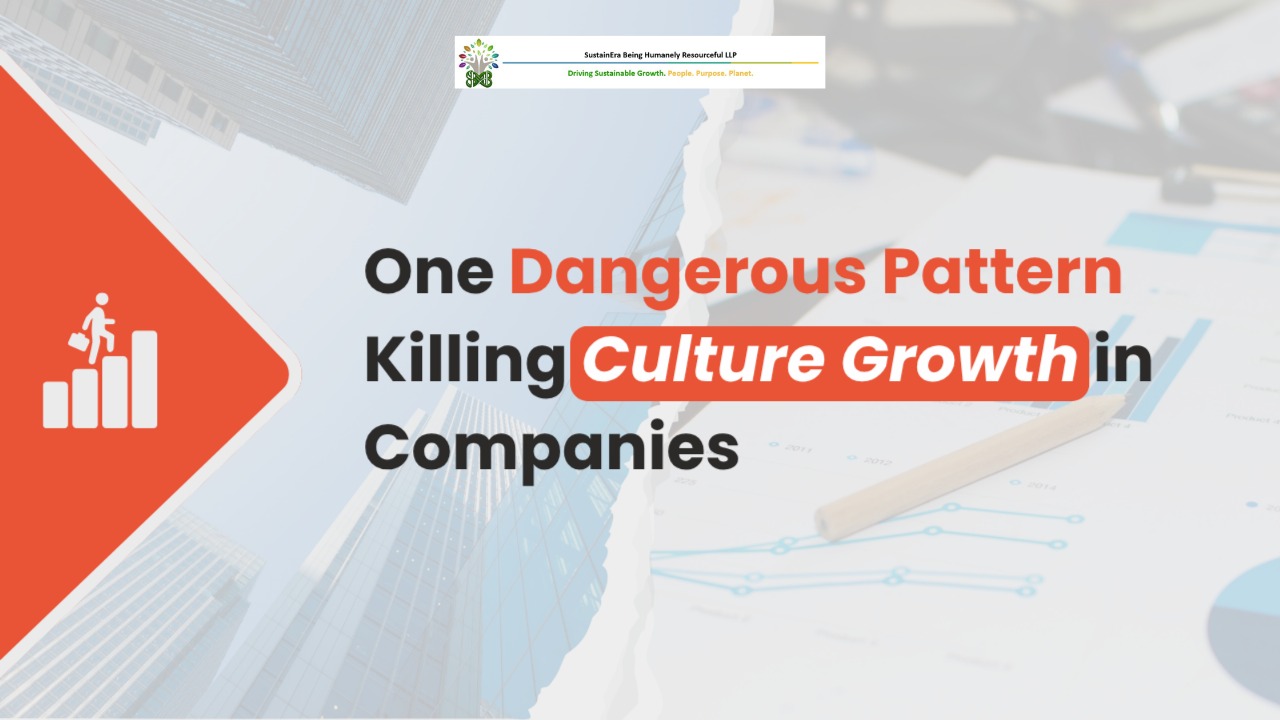There’s a subtle yet incredibly dangerous pattern silently eroding the very foundation of culture and performance within countless organizations. It’s an issue that rarely appears on strategic blueprints or flashy KPI dashboards, yet it spreads like a quiet virus, insidiously at first, then with accelerating, compounding damage. Its genesis lies in the earliest stages of the hiring process, and by the time companies become acutely aware of its presence, the cultural and financial costs are already alarmingly high.
This insidious pattern? It’s when candidates say “yes” to jobs they don’t truly want, leading to a profound misalignment. This isn’t just a concern for individual employees; it’s a critical challenge for sustainable HR management, directly impacting retention, productivity, and overall organizational health.

The Problem: Saying “Yes” Without Genuine Alignment
Too frequently, job seekers, driven by the understandable pressure to secure employment, accept offers without genuinely evaluating whether the role genuinely resonates with their core interests, deepest skills, or long-term career aspirations. In their eagerness to land a position, they inadvertently bypass a vital part of the interview process: asking candid, in-depth questions that truly reveal the day-to-day realities and strategic fit of the role.
Once these individuals join the company and begin receiving their daily tasks, the exhaustion they experience doesn’t necessarily stem from long hours or intense pressure. Instead, it originates from a far more profound and insidious misalignment: they simply do not enjoy the work. Mentally checked out, emotionally drained, and slowly but steadily disengaging, they become a growing liability rather than an asset. This individual discontent quickly transmutes into a deeply damaging force for the broader company culture.
Cultural Fallout: When Passionless Work Becomes the Norm
When individuals are performing tasks they genuinely dislike, their energy levels plummet. This decline affects far more than just their personal productivity. It casts a long shadow over team morale, stifles genuine communication, and inhibits creative problem-solving. Just as passion can be infectious, so too can disinterest.
What inevitably follows is a pervasive ripple effect that undermines the principles of sustainable HR management:
- Low Morale: Teams become less inspired and more prone to cynicism when working alongside disengaged colleagues, leading to a general atmosphere of apathy.
- Increased Attrition: Discontented employees are significantly more likely to leave, triggering a costly cycle of repeated hiring, onboarding, and training expenses—a clear sign of unsustainable talent practices.
- Erosion of Trust: Internal teams and hiring managers begin to question the efficacy of hiring practices, and a sense of mistrust concerning employee commitment can begin to fester.
- Stalled Innovation: Individuals who lack passion for their work rarely possess the intrinsic motivation to take creative risks, propose bold ideas, or champion innovative solutions.
Ultimately, organizational culture isn’t built merely with vibrant posters or enticing perks; it organically grows through the daily energy, concerted effort, and authentic attitudes of its people. When those people are disengaged and don’t genuinely enjoy what they are doing, the culture slowly and inevitably decays, presenting a significant obstacle to sustainable HR management.
Where the Problem Starts: Interviews as a One-Way Street
One of the core systemic issues lies in how many candidates still perceive and approach interviews: as mere one-way evaluations. They are conditioned to believe their primary objective is to impress, not to genuinely inquire or mutually discover. Consequently, they hold back critically important questions, such as:
- “What will my day-to-day work truly look like in this role?”
- “What tangible milestones define success in this role after 3 months, and then after 6?”
- “How does this specific work align with the company’s broader long-term strategic goals?”
- “Is this the kind of work I could genuinely commit to and enjoy doing every single day?”
Without these crucial inquiries, candidates effectively enter the role blind. Their initial excitement might be centered on the brand prestige or enticing benefits, but that excitement quickly dissipates when the day-to-day reality of the work fails to align with their fundamental motivations.
This pervasive problem is equally fueled by hiring managers who fail to actively encourage genuine dialogue. When interviews are rigidly structured to focus solely on assessment, rather than mutual discovery and candid information exchange, the wrong individuals often get hired for the wrong roles—even if they possess impressive résumés or seemingly high talent. This is a critical area where human resources consulting firms provide immense value, restructuring interview processes to prioritize alignment over mere qualification.
Why Candidates Say “Yes” Anyway
Let’s be entirely fair: the job hunting process can be incredibly stressful and emotionally taxing. Candidates frequently feel immense pressure to accept any decent offer that comes their way, especially in uncertain economic climates. There’s often a potent cocktail of factors at play: the fear of missing out on a rare opportunity, the fear of judgment for declining an offer, or simply a deep-seated desire to “get in” and hope to “figure it out later.”
However, what’s truly at stake is far more significant than just landing “a” job. It’s about securing a meaningful, productive, and fulfilling work experience for both the candidate and, critically, for the company’s long-term health.
Saying “yes” to work you know you won’t enjoy is akin to buying shoes that don’t truly fit. Eventually, despite your best intentions, you will simply stop walking.
✅ The Fix: Encourage Inquiry, Build Alignment for Sustainable HR Management
To effectively break this dangerous pattern and proactively protect organizational culture, both sides of the hiring process, candidates and companies, must fundamentally shift their approach. This is where strategic intervention from a human resources services company becomes invaluable.
For Candidates:
- Treat interviews as a two-way evaluation: You are interviewing them just as much as they are interviewing you.
- Ask penetrating questions: Inquire not just about the technical aspects of the role, but critically, about the team’s energy, core values, prevailing pace, and leadership style.
- Reflect deeply: Before accepting any offer, engage in genuine introspection about your core motivations, values, and what truly energizes you professionally.
- Understand this crucial truth: It is always better, in the long run, to politely decline the wrong job than to accept an offer that will lead to deep regret and disengagement.
For Companies:
- Cultivate interview environments that actively encourage honest inquiry: Make it safe and even desirable for candidates to ask challenging questions. This shows their genuine interest.
- Be transparent about the actual work: Candidly discuss the daily realities of the role, including both its triumphs and its inherent challenges. Avoid sugarcoating.
- Train hiring managers comprehensively: Equip them to look beyond just technical skills and experience. Train them to assess genuine enthusiasm, intellectual curiosity, and authentic culture fit. This is a core competency offered by the best HR outsourcing companies and leading human resources consulting firms.
- Normalize candidates asking tough questions: Frame this as a positive sign of genuine engagement and critical thinking, not as arrogance or doubt.
Culture Grows from Clarity and Choice
When individuals join companies with open eyes, clear expectations, and full hearts, they infuse the culture with vitality and authenticity. They don’t just burn out; they actively build up. They innovate, they collaborate wholeheartedly, and crucially, they stay. This virtuous cycle is the very essence of sustainable HR management.
Let’s collectively stop treating interviews as rigid performances. Instead, let’s transform them into authentic, mutual conversations—conversations where clarity and genuine alignment are the paramount objectives. Your culture, and the long-term success of your organization, fundamentally depend on it.
If you’re currently in a hiring role, honestly ask yourself: “Would I truly want someone doing this critical work if they didn’t genuinely love it?” And if you’re navigating the job market, deeply consider: “Could I honestly love this work on a Monday morning, every Monday morning?”
True organizational growth and true individual fulfillment happen when both sides choose with absolute clarity.
SustainEra Being Humanely Resourceful LLP helps companies achieve this crucial alignment, building a workforce that truly thrives. Contact us
#KeepPerseveringKeepInspiring #KeepLearningKeepInspiring #KeepThrivingKeepInspiring #BeingHumanelyResourceful #SustainableHR #SustainablyResourceful


